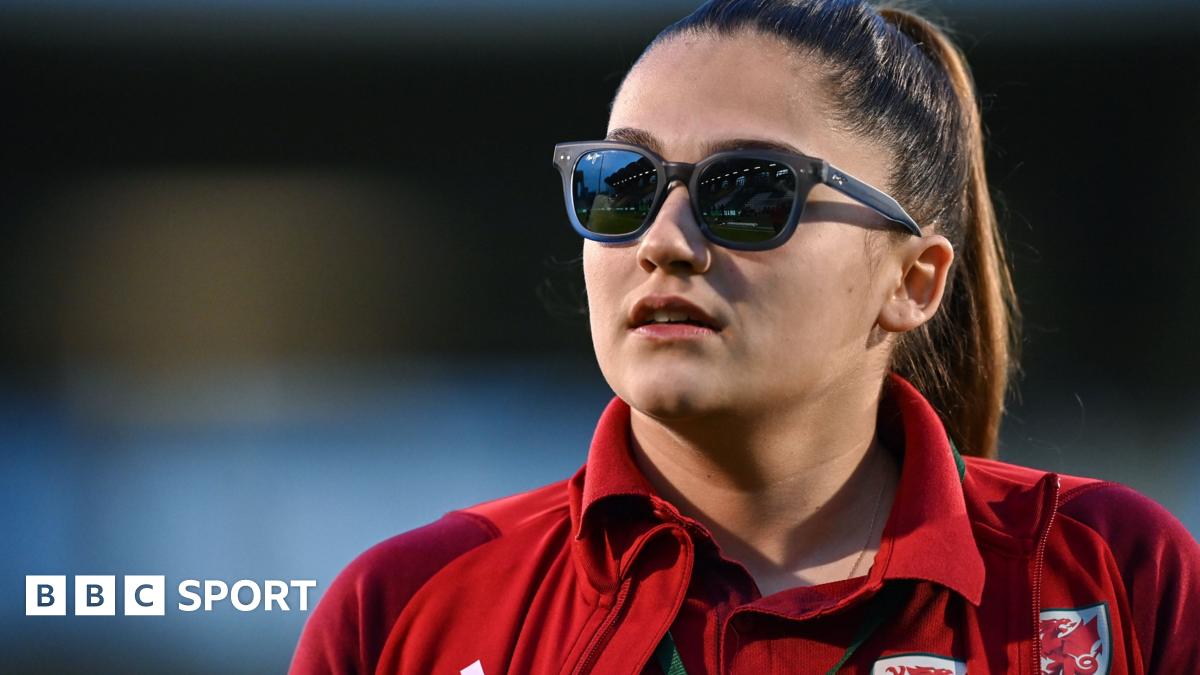Goalkeeper Safia Middleton-Patel is part of the Wales squad for Euro 2025. She is sparky, thoughtful, and has an infectious laugh. She is also autistic.
Overstimulation has sent her to bed, exhausted, for a week. A misunderstood social interaction can ruin her mood for months. She will drive miles past a petrol station to find one with a self-pay pump. And, unconnected to her disorder, she is of the opinion that tomatoes are vegetables, whatever the scientists say. Of which more later.
But first and foremost, the 20-year-old Manchester United goalkeeper is a hugely promising footballer – being named player of the match after a string of fine saves helped Wales earn a 1-1 draw in Sweden in April.
That was in the Nations League – and now she is heading to Switzerland for July’s European Championship, with Wales drawn in Group D alongside England, France and the Netherlands after qualifying for a major tournament for the first time.
As goalkeeper for the lowest-ranked side in the tournament she can expect to find herself in the thick of the action if selected – in which case Middleton-Patel will turn to her trusted, and possibly unique, method of reading the game.
“I kind of visualise the next pass as like the perfect Lego brick I’m missing in my set,” she explains.
“I’m searching for it and I’m getting in the right positions to find it.
“People probably don’t think about Lego when they’re playing football, but I’m looking for that brick to be ready. If it [the move] changes, you can always use a different colour one – it can always be a different pass.”
Among the many aspects of Autism Spectrum Disorder (ASD) – which can include difficulties with social interaction, sensory issues, and the need for routine and structure – hyperfocus is the characteristic many neurodivergent sportspeople single out as playing a large role in their careers.
“When I’m playing, that’s when I’m hyperfocused,” says Middleton-Patel. “When I am on the training ground or playing a game I don’t hear anything – it’s just the ball and myself.
“I probably hear my own heartbeat more than anything else.”
That laser-like focus, and the quietening of the mind, is a welcome change for Middleton-Patel, who admits she can find occasions most people would find normal to be overwhelming – both when she is around the game, or in life in general.
“If I’m sat on a bench or I’m sat in the crowd, or I’m watching football on the TV – oof. I hear all the fans, I hear all the cheers, I hear all the clapping,” she says.
“If someone is sat next to me drinking, I’m like: ‘Why are you drinking so loud? Can you stop?'” she adds with a smile, aware of the humour in the situation.
“Sometimes I will sit on the bench and I’ll have my hands over my ears and I get dirty looks from the fans because they are like, ‘are you a child?’
“No, I’m trying to focus.”
When Manchester United put out clackers for fans at an FA Cup game, she found the noise the crowd made unbearable, leading to her stimming, external – finger drumming is a big one for her – to try to prevent herself becoming overwhelmed.
“It got to the end of the game and I am sat, hands on my ears, rocking, because I couldn’t regulate any of my emotions and by the end of it I needed to take time for myself,” she says.
“I love the fans and I want to speak to the fans, but I need to get inside and that’s where it’s hard because you’ll get some messages online being like, ‘my daughter was there for you and you didn’t say hi’.
“I’m really sorry, but my mental health is my priority and if I need to go inside and just sit in a quiet room for two minutes, I’m going to have to. Otherwise the rest of the week will be sabotaged because of that.”
The key, she says, is finding a balance.
“I love my fans, but I also dread meeting them because of ‘the front’ I fear I have to put on, because if I give them one weird look or one dirty look when my face is so straight and it’s unintentional, they take it the wrong way,” she adds.
“[You want to say] ‘I’m really sorry, but there’s too many thoughts going on. I wasn’t looking and staring at you blankly and not being excited because you’re wasting my time. I really want to meet you, but I’m also very nervous for this interaction.'”
And while she firmly believes people should not be ashamed of openly stimming, it can still make her feel self-conscious when people notice, only increasing her discomfort.
“Sometimes when I’m sat in the stadium and I’m rocking and the fans are there [and one might be looking at you], it makes you so self-conscious because I’m like ‘straighten up on the chair, breathe in properly, am I looking in the right place? OK, do I look the part?’
“It’s like, ‘why do I have to do this? Why do I make myself feel like I have to put on this massive performance?'”








